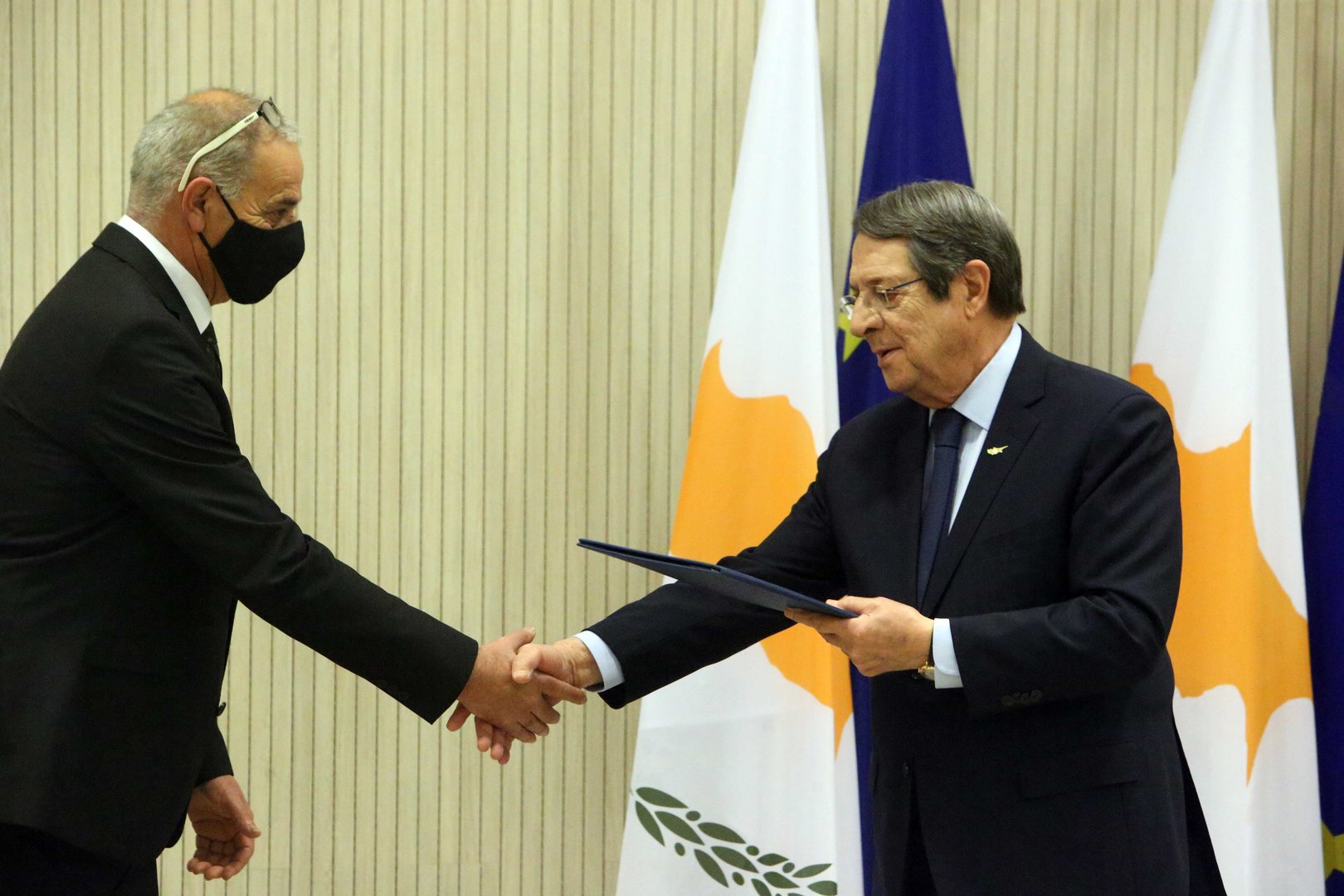President Nicos Anastasiades said on Monday that Cyprus’ energy strategy is focused on establishing a competitive internal electricity market, the creation of a natural gas market and further diversification of the country’s energy consumption via renewable energy sources.
He was speaking at the swearing-in ceremony of Neophytos Hadjigeorgiou as a member of Cyprus Energy Regulatory Authority (Cera) which has been tasked with to promote and safeguard healthy competition in the electricity and natural gas markets
Anastasiades said that meaningful progress has been achieved by the passing of bills on establishing a regulatory framework for a competitive electricity market, the fusion of Cera and its offices as a single legal entity under public law and on the autonomy of Cyprus Transmission System Operator. Protection of vulnerable consumers in view of the global rise in electricity prices has also been adopted.
A bill on renewable energy sources that includes the creation of a one-stop centre aimed at streamlining information, servicing, and licensing of renewable energy projects has also been submitted, he said.
Such developments, he said, come on top of the adoption of the National Plan for Energy and Climate for 2030, in line with EU’s Green Deal for climate neutrality 2050.
He mentioned that the implementation of 223 projects on renewables have been promoted and that in combination with existing infrastructure in businesses and households will lead to a rise of energy sourced from renewables beyond the mark of 700megawatts.
Other positive developments he cited include the securing of a 657 million euro grant from the European Commission for the construction of the “EuroAsia Interconnector”, the signing of a bilateral memorandum of understanding with Egypt, and the signing of a trilateral memorandum between Cyprus-Egypt-Israel on electricity interconnection.
Anastasiades said that by 2030, 80 million euros will be made available in subsidising energy storage projects while by 2025 400 thousand smart energy meters will be installed by utilising a 35 million euro subsidy.
He also noted that in 2021, more than 40 million euros in subsidies were spend on energy upgrade projects and expects that for 2022, these will surpass 90 million euros. On top of those two plans energy upgrade programmes for businesses and municipal buildings have been approved totalling 49 million euros while 269 million euros have further been made available via “Cyprus – Tomorrow” national plan aimed at reforms, investments and subsidy plans relevant to building energy efficiency and diversification of energy consumables via renewables.
As far as the state’s gross final energy consumption coming out of renewable energy sources is concerned, Anastasiades said that Cyprus has more than covered its commitment for 2020, with renewables making up 17 per cent of the total consumption instead of 13 per cent.
President Anastasiades praised Hadjigeorgiou’s appointment and praised him for his academic knowledge, experience, and previous contribution to Cera on energy matters.







Click here to change your cookie preferences